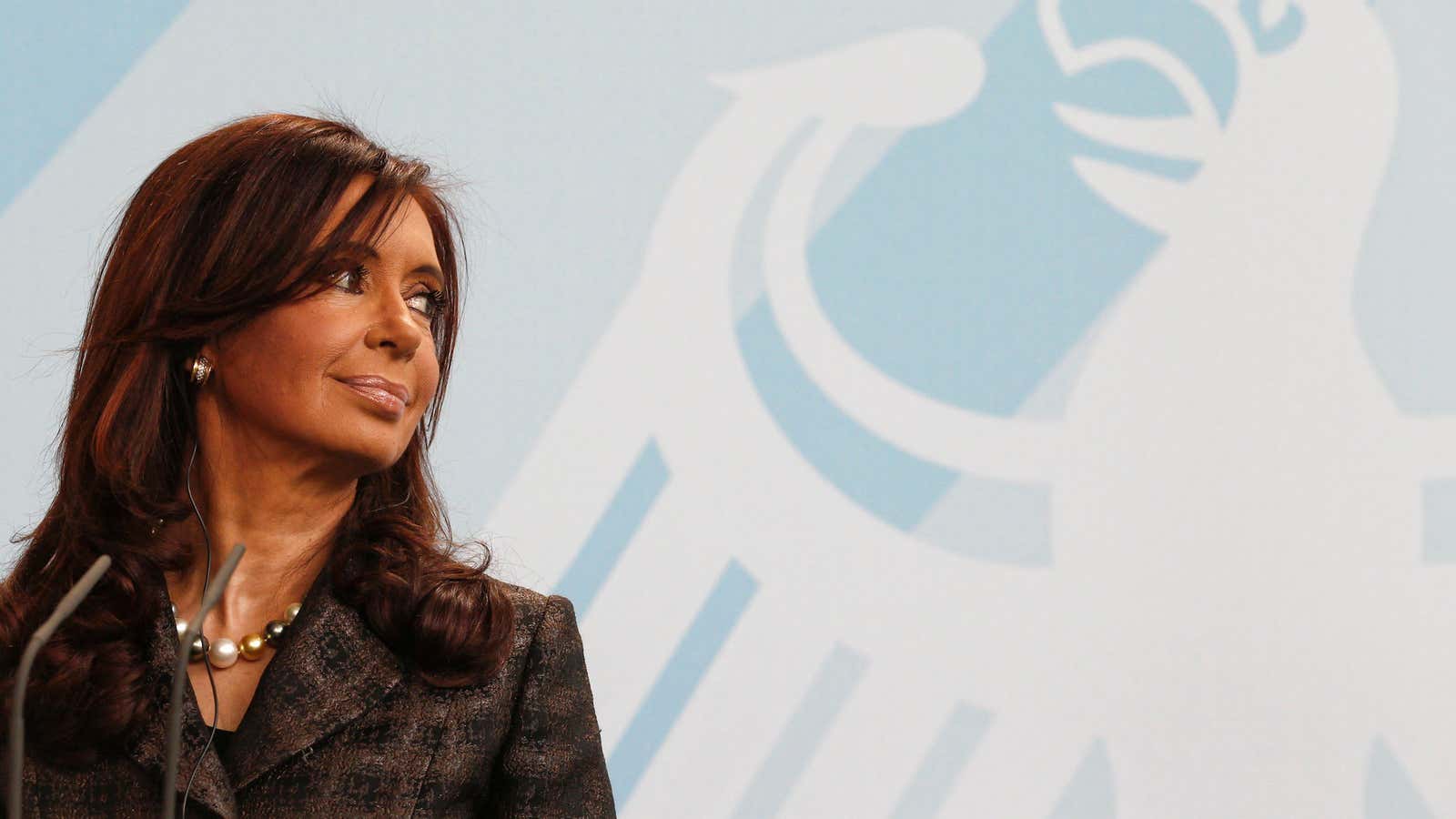The New York hedge fund NML Capital hopes an Argentine embezzlement scandal is the key to its own fortune.
NML has been engaged in a very public legal dispute with the government of Argentina for over a decade now, trying to recoup $1.7 billion in bonds that the country defaulted on. While the fund’s argument that Argentina should be forced to pay it before newer creditors awaits resolution in the Supreme Court, NML is trying to recoup its losses by seizing Argentine property. Infamously, it attempted to snatch a tall ship used by the Argentine navy as a training vessel.
But now it has a new angle: fighting corruption. Richard Cohen, NML’s attorney, spoke to reporters yesterday about the fund’s latest attempt to recoup its losses. A builder by the name of Lázaro Baez is under investigation in Argentina for his links to the president, Cristina Kirchner, and the previous president, her late husband Néstor Kirchner. As the Kirchners rose to power, Baez was awarded significant public works contracts, and prosecutors say that kickbacks were involved.
Like many alleged cases of corruption in emerging markets, this one takes a stop in the United States: The state of Nevada is known for its corporate registration rules that help companies avoid scrutiny and taxes. (There’s a reason that Apple’s financial arm, Braeburn Capital, is a Nevada corporation, not a California one.) An Argentine prosecutor, José Maria Campagnoli, has alleged that Baez transferred some $65 million from Argentina to 123 Nevada shell companies, and from there to Switzerland. Cohen says that Swiss banks have frozen those accounts due to the suspicions raised by Campagnoli—who was removed from the case by a tribunal at the request of a top justice official appointed by Cristina Kirchner.
NML’s lawyers are arguing that if the money was embezzled via public contracts from the state of Argentina by Baez, it belongs to Argentina—and anything that belongs to Argentina is owed to NML. Thus, it is asking a court to force the Nevada companies—which aren’t cooperating with their inquiries—to cough up any documents related to the money’s location.
Of course, even if NML learns where the money is, the fund won’t be able to seize it until the alleged embezzlement is proved—and there is no guarantee that the case will get a fair hearing, so long as Kirchner controls Argentina’s government. Even then, $65 million is a drop in the bucket compared to what NML is seeking from Argentina.
Ultimately, NML’s move may be a way to generate bad publicity for Kirchner in her own country, where she portrays her refusal to negotiate with hold-outs such as NML as a way of standing up to rapacious foreign interests on behalf of her people. If NML can make the case that her populism didn’t prevent Kirchner from abetting corruption at the expense of her countrymen, that could help convince Argentina to play ball.
